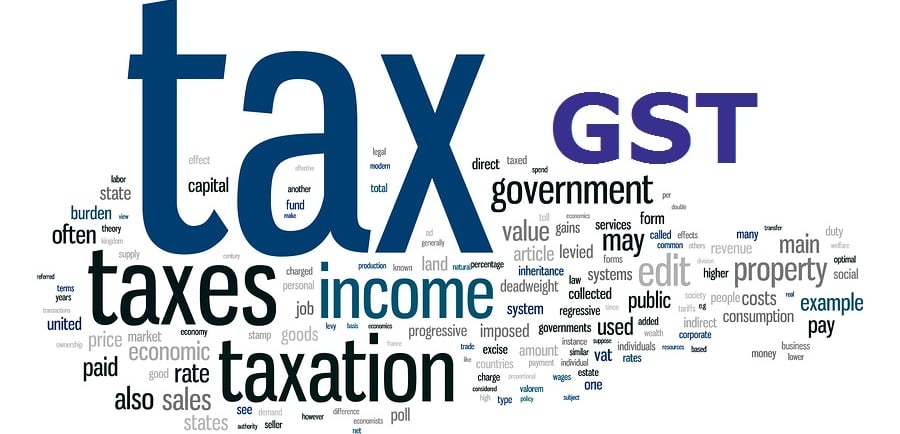Supreme Court Upholds Arrest Powers Under the Customs and GST Act
TAX


In a landmark judgment, the Supreme Court has upheld the constitutional validity of provisions relating to the power of arrest under the Customs Act, 1962, and the Central Goods and Services Tax Act, 2017 (CGST Act). The three-judge bench, led by Chief Justice Sanjiv Khanna, and comprising Justices M.M. Sundresh and Bela M. Trivedi, has clarified the legal framework governing the exercise of arrest powers by authorized officers under these Acts.
Background and Legal Precedents
The case revolved around challenges to the constitutional validity of the provisions under the Customs Act and the CGST Act that empower customs officers to make arrests. The petitioners contested the rights of these officers to arrest without a Magistrate’s warrant. The Court’s decision referenced the 2011 case of Om Prakash v. Union of India, where it was ruled that arrests could only be made by customs officers with prior Magistrate approval, given that the offences under these laws were non-cognizable and bailable. This judgment had placed restrictions on customs officers, preventing them from arbitrarily making arrests.
However, the legislative amendments to the Customs Act between 2012 and 2019 have significantly altered the landscape. These changes have carved out specific offences as cognizable and non-bailable, giving customs officers greater authority to make arrests under clearly defined circumstances.
Court’s Analysis and Conclusion
The Court observed that the amendments to the Customs Act explicitly redefine the types of offences for which arrests can be made. Certain categories of offences, notably those under sections 132, 133, 135, and 136 of the Customs Act, have been classified as cognizable, allowing customs officers to arrest individuals without a warrant, provided they have a reason to believe an offence has been committed.
While addressing the petitioners’ reliance on the Om Prakash decision, the Court explained that the 2012, 2013, and 2019 amendments supersede the earlier judgment. The amendments clearly delineate the procedure for arrest, including the requirement that customs officers must document the reasons for their belief that an offence has occurred. These amendments ensure that arrest powers are not exercised arbitrarily and are backed by sufficient justification.
The Court also took into account the provisions of the Criminal Procedure Code (CrPC) that apply to these arrests, particularly Sections 41-B and 50-A, which outline the procedural requirements for making an arrest. The Court highlighted that customs officers must maintain detailed records, including information about the offence, the person arrested, and the statutory basis for their actions.
Comparison with Other Laws
A significant part of the judgment involved comparing the arrest powers under the Customs Act with those under other laws, such as the Prevention of Money Laundering Act (PMLA). The Court noted that while there are similarities in the arrest provisions of the two Acts, there are also critical differences. Specifically, Section 104 of the Customs Act does not require customs officers to have "material in their possession" to make an arrest, unlike the provisions under PMLA. However, the Court emphasized that this does not mean customs officers can act on mere suspicion. The threshold for arrest under Section 104 is higher than under Section 41 of the CrPC, and the officer must have concrete reasons to believe that an offence has been committed.
Implications for the GST Act
The Court also addressed the powers of arrest under the CGST Act, noting that the reasoning applied to the Customs Act should equally apply to the GST Acts. It clarified that officers under the GST Acts can arrest individuals involved in non-bailable offences under the same conditions as those under the Customs Act. The Court pointed out that the Commissioner of GST must record detailed reasons for arrest, ensuring that arrests are based on valid grounds and not arbitrary.
The Court also dismissed concerns raised about the potential misuse of arrest powers in GST cases. It asserted that individuals coerced into paying taxes under the threat of arrest could challenge such actions in court and seek a refund if necessary.
Constitutional Validity of Arrest Powers
The Supreme Court upheld the constitutional validity of Sections 69 and 70 of the GST Acts, which empower officers to summon and arrest individuals suspected of violating GST laws. It reasoned that these powers are ancillary to the government’s power to levy and collect goods and services tax under Article 246-A of the Constitution. Therefore, the Court rejected the challenge to these provisions, affirming that the legislative power to enact such laws is constitutionally sound.
Conclusion
In its judgment, the Supreme Court has provided important clarifications on the scope and limits of arrest powers under the Customs Act and the CGST Act. By emphasizing the need for documented reasons for arrest, ensuring that arrests are made in line with the legal framework, and highlighting the role of judicial oversight, the Court has aimed to balance the enforcement of tax laws with the protection of individual rights. This decision has significant implications for the functioning of customs and GST authorities, setting clear guidelines for the exercise of arrest powers, while safeguarding against potential abuses.
